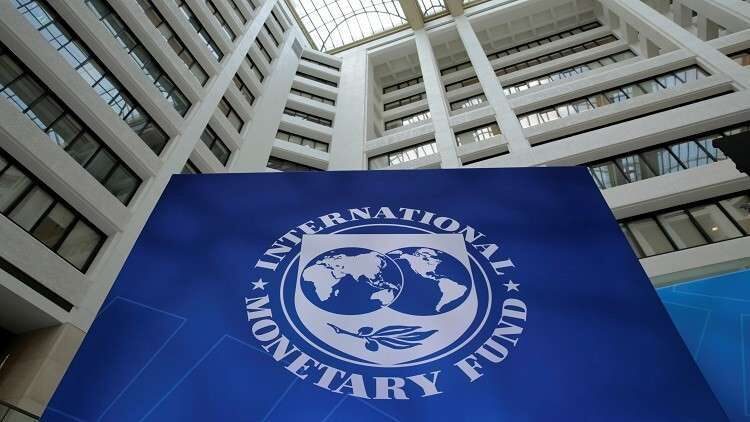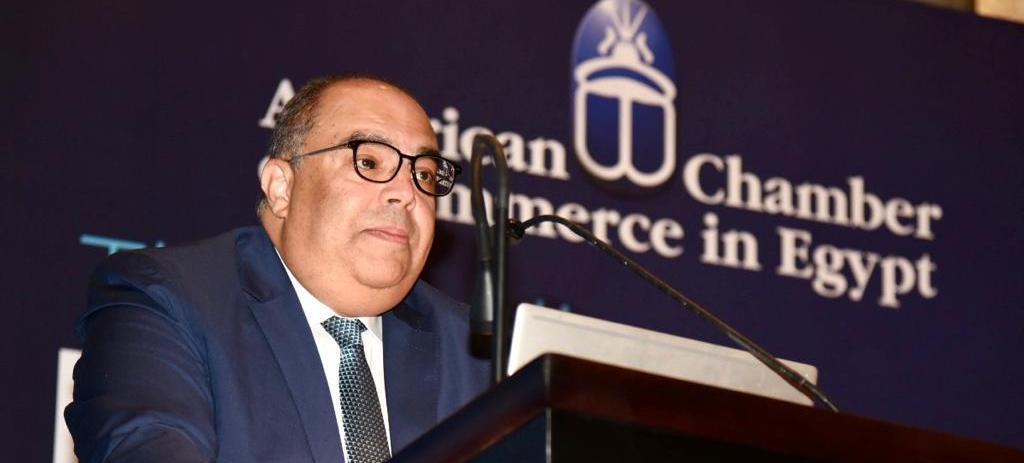With the economy increasingly strapped for foreign currency, the government has been seeking ways to increase the private sector’s contribution to GDP. In May 2022, it published the State Ownership Policy (SOP) document, which opens the door for the government to sell stakes in 32 state-owned companies by 2024 by listing them on the stock exchange or selling them directly to foreign investors.
Prime Minister Mostafa Madbouly has said the sell-off would raise the private sector’s contribution to GDP from 30% to 65% in three years. In December, he told Al Ahram English the aim is to “increase the rate of [private sector] investments by 25% to 30% to achieve 7% to 9% growth in the economy.”
Such an influx of private-sector investment could create monopolies, invariably hurting other efforts to promote domestic investment and FDI outside the SOP. “This government believes in the importance of adopting [an effective] competition policy [to] provide an attractive environment for local and foreign investments,” said Chairman Mahmoud Momtaz of the Egyptian Competition Authority (ECA) at a March press conference. “The Competition Law has been amended to enhance the effectiveness of the ECA’s mandate, granting it additional independence to enforce the law more effectively.”
That puts pressure on any local companies targeted for acquisition along with foreign and local investors to determine whether their decisions might disproportionately increase their market influence or, worse, drive out competitors.
Neutralizing the market
The ECA’s current strategy began in 2021 and ends in 2025. In May, Momtaz told AmCham Egypt that the authority’s strategic objectives are to ensure “effective enforcement of competition laws,” make sure they are not too restrictive for new or small-scale players and “disseminate the culture of competition.”
Momtaz emphasized the focus is on guaranteeing there are “no cartels, [no] abusive dominance, [or] constraints to competing in the market.” That is vital, as “Egypt is a concentrated-upstream market with few suppliers giving branding companies and distributors [products],” said Momtaz. “Hence, any price abuses downstream could be [widespread if they are] coming from upstream providers.”
The short-term benefits of effectively implementing the ECA’s modified legislation should mean fairer prices and even more consumer choices. Momtaz stressed that creating a level and transparent playing field for all companies would also protect the state. “The government is the biggest buyer. Therefore, our efforts affect the state budget, which can be the difference in saving billions of pounds.”
In the long term, a fair and competitive marketplace would help achieve several Egypt Vision 2030 targets. Momtaz said those include “improving residents’ quality of life, [and] creating a strong economy that can achieve its strategic objectives. [A level playing field also] expands knowledge and innovation, and ensures a leading stature among other economies.”
The ECA’s strategy also aims to realize five of the UN’s 17 Sustainable Development Goals (SDGs): SDG 1 (no poverty), SDG 8 (decent work and economic growth), SDG 12 (responsible consumption and production) and SDG 17 (partnership for the goals).
Legislative updates
The first amendments to the 2005 competition law were in November 2020. Baker McKenzie’s Africa Competition Report 2022 said those modifications affected “multiple sectors, including healthcare, food, electronic and electrical appliances, automotive, real estate, media and petroleum.”
In June 2022, Madbouly announced the creation of the Higher Committee for Competitive Neutrality, which he chairs. It includes representatives from the ECA and several ministers and government officials. During their inaugural meeting, the prime minister said, “The committee [is] a first and crucial step [to ensure] competition and competitive neutrality in markets.”
As of May, all government bodies need to “consult with the ECA before issuing legislation that could affect competition,” Momtaz told AmCham. “Additionally, the ECA is disseminating its guidelines to help [state] agencies assess the impact of their decisions on competition.”
Momtaz also noted there will be workshops for employees in state agencies on “competitive neutrality” and smaller modules that would be included in other government-sponsored training courses.
Those efforts enabled Egypt to improve its ranking in the UN’s competition protection index from “developed” in “antitrust and competition laws” in 2020 to “very strong” by the end of 2022. “Competition enforcement practices” went from “moderate” to “very strong” in the same timeframe. Meanwhile, “institutions” and “accessibility [and] transparency” were both “very strong” in 2022 compared to “strong” in 2020.
In the works
Seeking to further regulate the market amid a potential influx of private sector investments, the ECA announced last year amendments to regulate mergers and acquisitions (M&A). The president ratified the law in December.
Momtaz said the modifications make “notifying the ECA mandatory for all transactions that [reach or cross] the ‘concentration’ threshold.” That limit is when the “combined turnover [of the target company] in Egypt is over EGP 900 million ($29.1 million).” It also would apply if two parties involved in a transaction each had an EGP 200 million turnover.”
The notification obligation applies to local and foreign investors targeting Egypt-based private or state-owned companies. Momtaz said modified legislation would enable ECA to “investigate complaints from [private sector] market players regarding any anti-competitive decisions made by the state.”
The amended law also allows the ECA to proactively monitor and investigate government decisions for any “anti-competitive state [decisions] before they are issued,” noted Momtaz. “The ECA will intervene if there is any violation of its guidelines.”
The new version divides the M&A approval process for all and any transactions into two phases. The first is “the straightforward one,” said Momtaz. “Most [mergers] would be approved in this phase.” It could take as long as 45 days. Phase two is when there is concern the agreement would give the new entity disproportionate influence over the market or create a monopoly. That would require a deeper investigation. Momtaz said that phase could take 75 days.
The new version of the law also requires deals involving companies overseen by the Egyptian Financial Regulatory Authority (FRA) to submit merger documents. “The parties are obliged to notify the FRA of any economic consideration that takes place in any of the activities under the supervision of FRA before concluding the contract,” said Momtaz. “The FRA is then obliged to consult the ECA before approving” the deal.” He said the process should take 30 days from “receiving completed notification [documents] from the FRA.”
He noted that, under the new law, companies that finalize a merger agreement before getting official approval from the ECA would be penalized. They would have to pay between 1% and 10% of the transaction value or the total annual turnover of the new company or the value of the assets bought, whichever is higher.
The ECA is not enforcing those amendments yet, pending issuance of the executive regulations, which the Cabinet is still discussing, Momtaz said. However, he advised companies involved in a potential M&A deal to “pre-notify the ECA of their discussions and consult on the possible impacts on market competitiveness. Those discussions will not have any legal implications.”
Regional cooperation
The ECA has been looking to cooperate with neighboring countries to protect consumers, which has proven highly beneficial. “Cooperation may … help address common concerns by using fewer resources,” according to a 2022 OECD report. “[One] example [is] the issue of identifying transactions that the parties unlawfully failed to notify.”
In March 2022, Momtaz announced the creation of the Arab Competition Network, which includes representatives from all Arabic-speaking competition authorities. “It aims to increase the efficiency of [MENA] agencies, enforcement, [impose] merger controls, [and] conduct simulations for students,” said Momtaz. “We saw a lot of similarities, which [would] reduce costs and increase efficiency.”
Momtaz also noted the ECA’s participation in the African Heads of Competition Dialogue founded in February 2023. It comprises consumer protection authority heads in countries that are part of COMESA. “It aims to merge legislation, ensure [cross-border] enforcement in anti-competition cases, [conduct] joint training and capacity building programs. [It will also support] joint competition advocacy efforts to enhance trade between member states, [and have a] permanent working group on joint matters and cases.”
The ECA is also the home of the U.N. Conference on Trade and Development (UNCTAD) Regional Training Center, where MENA and African competition authority employees train.
According to the U.N.’s competition protection index classification, Egypt’s “international agreements” went from “weak” in 2020 to “very strong” in 2022.
Preparation is everything
The government’s increased attention to preventing monopolies will only prolong the approval process of M&A deals as ECA investigations increase. “There is a lot of concern in Egypt that the new modification could delay the closing process, rather than the post-merger inspection of competitiveness,” Tamer Nagy, global competition partner at White & Case LLP, told AmCham in May,
“The first phase, including weekends, could take two months,” Nagy said. “Phase 2 is [an additional] 3.5 months. [In reality, either phase] could extend [beyond that] quite a bit.” Another factor that could increase delays is if “the agreement requires clearance across multiple countries,” he said.
Taking longer to issue approvals and rejections could significantly hurt Egypt as an M&A destination in the MENA region. In March, U.S. law firm Ernst & Young MENA said Egypt was among the top five destinations for merger and acquisition deals in MENA last year.
According to Enterprise’s M&A Tracker, the number of completed deals in Egypt in 2022 reached 66, up from 31 in 2021. Transaction values are also increasing. Vodacom’s acquisition of 55% of Vodafone Egypt was the most expensive transaction of 2022.
Mohamed Ghannam, managing partner at Baker McKenzie in Cairo, said in the firm’s 2022 M&A report, “Despite increased global and domestic market uncertainties … we continue to see reasonably strong interest and opportunities in the Egyptian market.”
Accordingly, the most effective solution is for local companies to be “proactive” by starting early internal analyses and consultations with the ECA about how the competition landscape would change if a particular deal goes through. “It is a reality in many countries to start early, as delays happen worldwide.”
That puts pressure on parties involved in an M&A deal as they must search for potential anti-competition practices at a very early stage. Additionally, they need to develop a “strategy to avoid competition problems” even before the ECA reviews the M&A request.
Thirdly, modified laws mean companies should always have a backup plan and be on top of their marketing and sales practices if the ECA unexpectedly investigates them.
Nagy stressed that firms need a “standalone policy” that “sets the right tone and provides all the information needed transparently.” Sometimes, it is not the company that has done anything wrong. It could be because “the ECA is investigating the sector … or another company, and needs a reference.”
Multinational companies could be subject to an investigation by local competition authorities just because an overseas subsidiary or the parent company is investigated in another jurisdiction. Nagy calls such inquiries “copycat investigations.”
He noted such investigations pose a significant threat to a company, as it can get into trouble if it doesn’t respond or gives incorrect or inconsistent info.” That could happen, as some companies are large, making consistency difficult. Nagy explained, “Sometimes, the anti-competition behavior comes from first-line and low-level employees who violate the company’s standard operating procedures.” According to Nagy, the most effective solution is having one department authorized to deal with all ECA inquiries and investigations.
Nagy is optimistic that, with time, discussions and consultations with the ECA will become less burdensome and complex. “ECA processes and investigations should become faster the more they implement the system,” he said. Additionally, training company employees to identify, investigate and resolve anti-competition practices internally would expedite the process from the company’s side.







